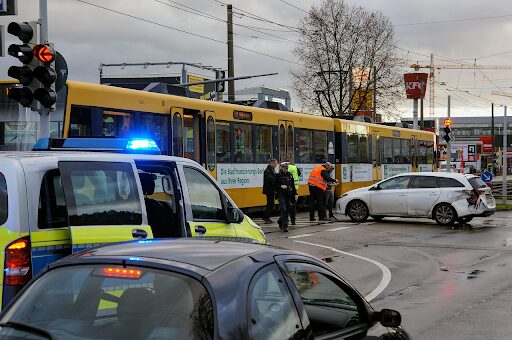A car crash can leave you overwhelmed. On top of handling repairs and injuries, collecting the right documents is crucial. These papers tell your side of the story, help secure compensation, and smooth over insurance claims.
It’s not just about jotting things down; knowing what to gather matters most. Whether it’s evidence from the scene or receipts for treatment costs, staying organized keeps stress at bay.
Stick around to discover six essential items every driver should collect after an accident.
-
Police Report
A police report is one of the most important documents after a collision. It provides an unbiased account of what happened, including details like time, location, and parties involved. Officers also document visible damages, witness statements, and traffic violations.
This report can serve as strong evidence when dealing with insurance companies or legal disputes. To obtain it, contact the law enforcement agency that responded to your accident. There may be a small access fee, but it’s worth having this official record on hand.
-
Photos or Video from the Scene
Along with the police report, photos or video footage taken at the scene are critical. They capture damage to vehicles, road conditions, weather, and any visible injuries immediately after the crash. This visual evidence can clarify disputes and support your claim.
Take clear pictures from multiple angles. If available, dashcam footage adds even more credibility.
When presenting a case to insurance companies or even auto accident lawyers, this documentation paints a vivid picture of what occurred. Store these files safely for future reference in case they’re needed later on.
-
Witness Contact Information
Witnesses play a key role in validating your version of events. Collect names, phone numbers, and any other contact information from bystanders who saw the accident happen. Their firsthand accounts can provide clarity and support when filing claims or addressing disputes.
Insurance companies often value neutral third-party statements to confirm what took place. Make sure to follow up with witnesses promptly while their memory is fresh. If the police take down witness details, double-check that they’re included in the report for easy reference later on.
-
Medical Records and Receipts
After an accident, medical records and receipts document the extent of your injuries and the treatments you’ve received. These papers not only validate your physical condition but also establish a clear link between the crash and any health-related expenses.
Keep copies of hospital bills, doctor’s notes, prescriptions, therapy sessions, or even over-the-counter medication receipts. This information becomes crucial when filing insurance claims or seeking compensation for damages. Having detailed records ensures that no costs are overlooked during settlement discussions or legal proceedings.
-
Repair Estimates
Once your vehicle is inspected, obtain written repair estimates from reputable auto shops. These estimates outline the cost of fixing damages caused by the accident, providing a clear figure for negotiations with insurance companies.
Even if repairs aren’t immediately needed, keeping this document ensures you’re compensated fairly. Compare quotes from multiple mechanics to ensure accuracy and avoid undervaluation. Detailed estimates—including parts, labor costs, and timelines—strengthen your claim for property damage.
-
Insurance Correspondence
Finally, keep a thorough record of all communications with your insurance company. This includes claim forms, emails, letters, and any notes from phone conversations about the accident. These documents track what has been discussed and agreed upon during the claims process.
Accurate records protect you if disputes arise or delays occur. Organize these materials in chronological order for easy reference. If legal action becomes necessary, having detailed correspondence ensures your advocates can build a strong case based on documented interactions with insurers.
Closing Thoughts
Handling the aftermath of a traffic collision can feel overwhelming, but staying organized makes all the difference. Gathering these key documents not only protects your rights but also simplifies what could otherwise be a complicated process.
Think of it as building a safety net for your future. With the right preparation and attention to detail, you’ll be better equipped to navigate recovery and ensure fair resolutions moving forward.

